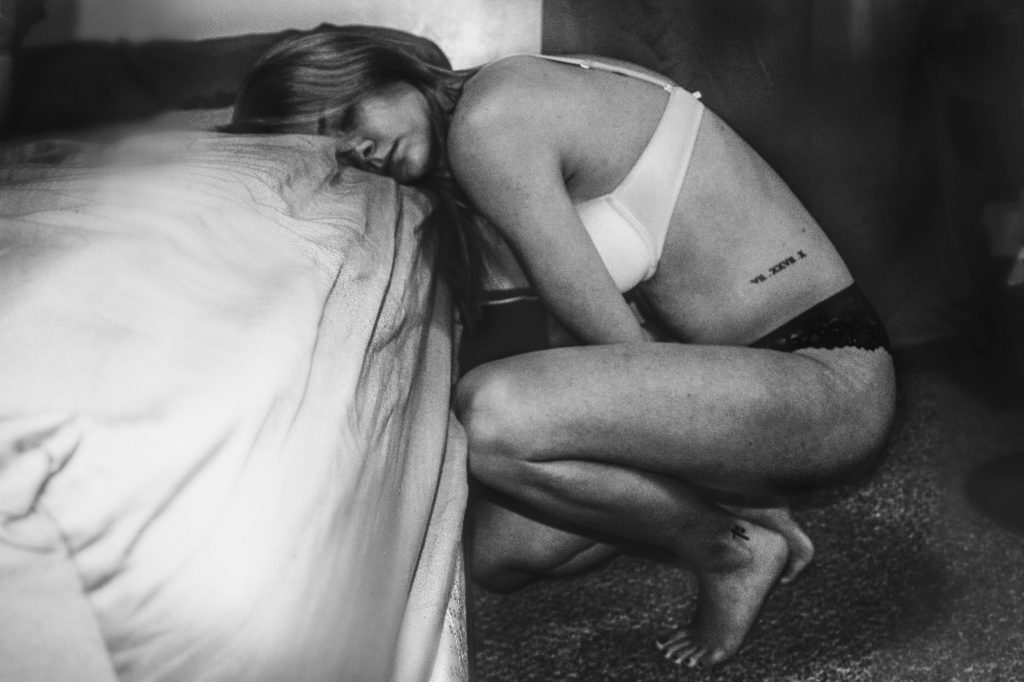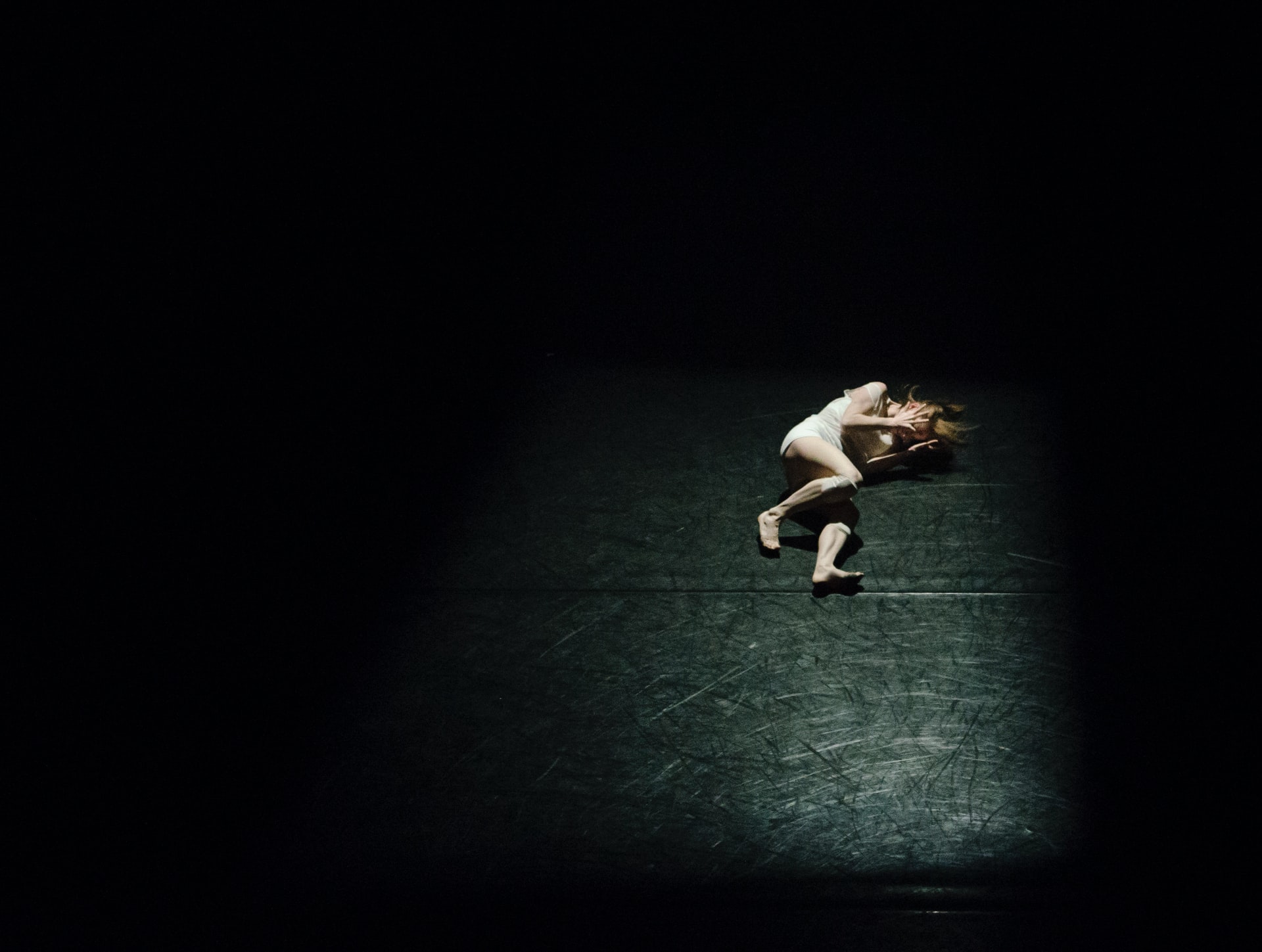They don’t show sexual anxiety in the movies
I rarely find the sex scenes of TV shows and movies relatable. Particularly those of zealous lovers or steamy hookups. The reasons for this vary. One is entertainment’s tendency to fantasy over reality. Sex on the screen is perhaps meant to look different, better even, than sex in real life. It occasionally embraces the less sexy, awkward elements but sexual anxiety – and I’m not just talking about sexual performance anxiety – is rarely portrayed in ways that feel truly real.
The thing that strikes me as most notable, or different, is how easy sex looks on TV. There are some exceptions, but for the most part, sex is presented as something that happens swiftly with little forethought and often no real consequence. Every once and a while there is a character who gives us a sliver of vulnerability. Maybe they hype themselves up in the bathroom beforehand. Or we feel for them when the experience doesn’t go quite the way they’d hoped. But other times, everything seems to go completely and totally right.
As the characters move seamlessly onto the next scene, flaunting an air of casual confidence, I’m often sitting on the couch wondering why I too can’t be cool about sex. Anxiety, whether preemptive or retroactive, always seems to get in the way.
Yes – But could you wash your hands first?

As someone with obsessive compulsive disorder (OCD) and health anxiety, sex is, well, not just sex. It’s difficult for me to put into words what I mean by this exactly. The best way I can think to explain it is to acknowledge OCD’s fundamental desire for control. Much of my anxiety clings to the unknown. Through compulsions, OCD seeks to ward off anxiety’s imaginative composition of worst-case scenarios. But when it comes to sex, there are multiple variables at play, not all of which can be controlled.
To give a more concrete example, I was talking with my therapist recently about dating and asked for her advice on navigating some of the sexual scenarios that may trigger anxiety. Well, okay, that’s not exactly how it happened. I more so posed a very specific question and asked for her opinion: “Do you think it’d be weird if I asked someone to wash their hands before hooking up?”
Her response: “No, that’s perfectly reasonable. BUT you have to keep it within reason,” she said. “If you’re going to watch them wash their hands or ask them to repeatedly wash their hands so you can be sure they did, then, yeah, that is weird. OCD will kill the mood before anything even happens.”
I laughed when she said this because she was right. She anticipated how OCD was already warping my thoughts into obsessions. She knows OCD will cling to the possibility of what if, no matter how illogical or unreasonable the slightest .0001 percent chance of my fears actualizing may be. OCD will always want more than it is given.
I felt reassured hearing this understanding in my therapist’s voice. Expressing my concerns related to sexual and reproductive health to doctors, however, is a different story. My questions are oftentimes met with scrunched eyebrows. The doctors point to numbers on a chart. My hypothetical scenarios catch them off guard. Perhaps they were not taught how to respond to such queries in med school. They think their facts and statistics will calm me. They say, “you’re probably fine,” even when they have no answer or solution to give. They know the science, but they do not understand how OCD feels.
Is it possible to balance anxiety and reason?
Over the last 10 to 15 years, sexual anxiety has culminated in a mix of emotions and experiences. I’ve always, and still do, feel compelled to hide it from others, sometimes sacrificing my relationships because of it. I’ve pursued uncomfortable situations to convince myself that I can overcome my fears, often only to be proven wrong. It can be incredibly isolating. And what’s worse is that even when I know I’m not at fault, I still bear a burden of responsibility. I absorb what I perceive or anticipate as disappointment and rejection from others.
The truth I’m working to accept is that I will probably never be “cool” about sex like those on TV. That’s such a narrow depiction to fit into anyway. I spent a lot of time when I was younger fixating on what I thought my sexuality should look and feel like. I care less about that now. I’ve reached a point where I believe I owe it to myself to feel 100 percent confident and comfortable in my sexual experiences. However, OCD and anxiety still complicate what that means.
It’s a fine line to walk. That is, as my therapist says, “trying to keep it within reason.” Reason and anxiety are not things that easily balance. One almost always outweighs the other and finding equilibrium often requires sacrifice. The question I find myself pondering is which side I can tolerate sacrificing more. To what extent do I force myself into discomfort knowing the alternative is allowing fear to hold me back? What experiences will I miss out on if I choose to stay within only the realms which I can control?
I don’t yet have the answers to these questions. All I know is that the only way I’ll find them is to try. And for now, that’s all I’m asking of myself.




